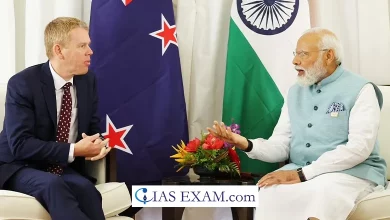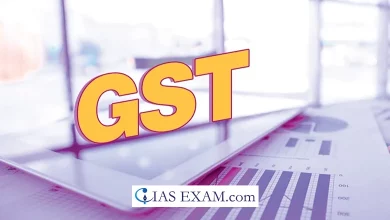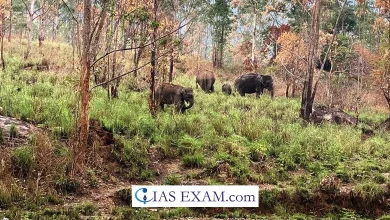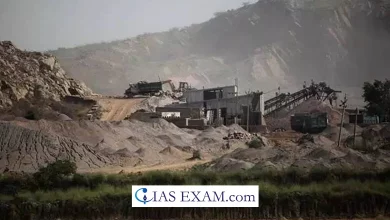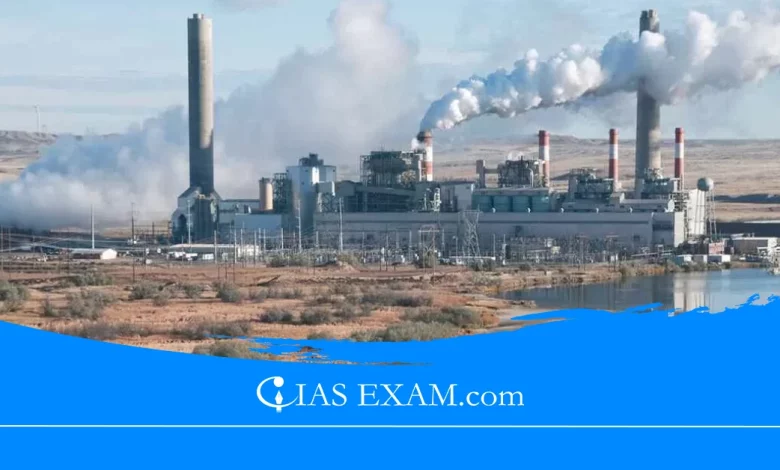
Context
IQAir, a Swiss technology company has recently released the 6th edition of the World Air Quality Report 2023.
About
- IQAir is a Swiss technology corporation.
- The data in the report was accumulated from more than 30,000 air quality monitoring stations across 7,812 locations in 134 countries and regions.
Major Findings of the Report
- A total of 124 (92.5%) out of 134 countries and regions exceeded the WHO annual PM2.5 guiding principle value of 5 µg/m3.
- Top Polluted Countries: Top five most polluted nations in the world in 2023 included: Bangladesh, Pakistan, India, Tajikistan and Burkina Faso.
- For the first time in the records of this report, Canada was the most polluted country in Northern America.
- Third Most Polluted: India was declared as the third most polluted country in 2023, after Bangladesh and Pakistan.
- India has an average annual PM2.5 concentration of 54.4 micrograms per cubic metre.
- 96% of the Indian population experience PM2.5 level more than seven times the WHO annual PM2.5 guiding principle.
- Most Polluted Cities: In the top 50 most polluted cities in the world, 42 cities have been in India.
- Begusarai was the most polluted town of 2023, followed by Guwahati and then Delhi.
- Delhi: Delhi has emerged as the world’s most polluted capital city and noticed an increase in PM2.5 concentration from 89.1 to 92.7 micrograms per cubic meter over between 2022 – 23.
- Least Polluted Cities of India: Silchar in Assam (7th), Aizawl in Mizoram (8th) and Damoh in Madhya Pradesh (15th) were the least polluted towns in the central and south Asia region.
- Countries Meeting WHO standards: Seven countries which met the WHO annual PM2.5 guideline (annual common of 5 µg/m3 or less) included Australia, Estonia, Finland, Grenada, Iceland, Mauritius, and New Zealand.
WHO Air Quality Guidelines
- The first launch of the guidelines was in 1987.
- The WHO Air quality guidelines are a set of evidence based recommendations of limit values for specific air pollutants developed to help countries achieve air quality that protects public health.
- The WHO Air quality guidelines suggest levels and interim targets for common air pollutants: PM, O3, NO2, and SO2.
Steps Taken by Government of India to combat Air Pollution
- National Clean Air Programme (NCAP): Launched in 2019, NCAP is a complete initiative with the intention of reducing air pollutants in identified cities and areas across India.
- The software makes a speciality of improving air fine monitoring, implementing stricter emission standards, and promoting public cognizance.
- Bharat Stage VI (BS-VI) Emission Standards: The government applied BS-VI emission standards for vehicles nationwide in 2020.
- These standards intend to lessen vehicular emissions with the aid of mandating using cleaner fuel and more superior emission control technologies.
- Pradhan Mantri Ujjwala Yojana (PMUY): The PMUY scheme aims to provide clean cooking fuel to households by promoting the use of liquefied petroleum fuel (LPG) as an alternative to traditional biomass-based cooking methods.
- FAME (Faster Adoption and Manufacturing of Hybrid and Electric Vehicles) Scheme: The FAME scheme promotes the adoption of electrical and hybrid cars to reduce air pollution as a result of vehicular emissions.
- Incentives are furnished to both manufacturers and consumers to inspire the use of electric powered motors.
- Green Initiatives for Sustainable Habitat (GRIHA): GRIHA is an initiative to promote sustainable and environmentally pleasant practices in the construction and operation of buildings.
- It encourages the use of energy-efficient technology and substances to lessen pollution.
- Waste Management Programs: Proper waste management is vital to prevent the burning of waste, which contributes to air pollution.
- Various waste control initiatives, including the Swachh Bharat Abhiyan, aim to address solid waste problems and promote cleaner disposal techniques.
- Commission for Air Quality Management: The Commission has been set up for Air Quality Management in the National Capital Region and Adjoining Areas for higher coordination, studies, identity, and resolution of troubles surrounding the air quality index.
- Graded Response Action Plan (GRAP): It is a fixed of emergency measures that kick in to prevent similarly deterioration of air quality once it reaches a positive threshold in the Delhi-NCR vicinity.
- Promotion of Public Transportation: Encouraging using public transportation, along with buses and metro systems, enables reducing the number of individual vehicles on the road, consequently lowering vehicular emissions.
Source: The Hindu
UPSC Mains Practice Question
Q.What are the reasons for rising air pollution in Delhi? Enumerate the measures taken by the government in this direction and their efficacy. (250 words)





.png)
